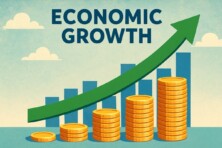Germany has slipped into recession amid a decline in consumer spending after last year’s shock in energy prices.

Source: Pixabay.com
According to official data released on Thursday, May 25, the volume of production in the largest European economy in the first three months of this year showed a decrease of 0.3% compared to the result of the previous quarter. As of the end of 2022, the drop in this indicator was 0.5%.
The Federal Statistical Office has revised its forecast of zero growth in gross domestic product (GDP) compared to the previous quarter. A recession is defined as a decline in output recorded for two consecutive quarters.
The Federal Statistical Office reports that a significant increase in the cost of goods and services is a burden on the German economy. The current state of affairs has affected household spending, which in the first quarter of 2023 decreased by 1.2% compared to the result recorded in the previous three months.
Klaus Vistesen, chief economist of Pantheon Macroeconomics for the Eurozone, said that the restriction of consumer spending in the period from January to March this year is the result of a shock in energy prices.
Currently, natural gas prices are within the limits of those values that were observed at the end of 2021. This means that there has been a weakening of inflationary pressure on the financial capabilities of consumers.
The annual inflation rate in Germany showed a slowdown in April 2023 but remained high, amounting to 7.2%. Vistessen says that consumer spending will recover as inflation declines. He also expressed doubt about the prospect of a drop in GDP in the coming quarters. At the same time, the economist noted the absence of signs of intensive recovery of this indicator.
The recession in Germany is not likely to be long-lasting. This forecast is supported by the growth of business activity in the country in early May against the background of a sharp decline in the manufacturing industry.
Francisca Palmas, senior economist for Europe at Capital Economics, disagrees with the optimistic expectations. In her opinion, the decline in production volumes in Germany will continue in the third and fourth quarters of 2023. She noted that high-interest rates, used as a tool to curb inflation, will put pressure on consumption and investment activity, and also potentially can hurt German exports.
As we have reported earlier, Main Street Merchant Recession Expectations Match Fed.









